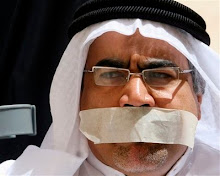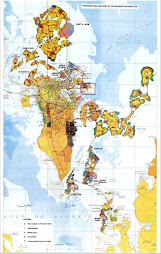
Bahrain
6.03.2008
Report says promises need to be turned into reality
Reporters Without Borders today issued its report of a fact-finding trip to Bahrain, coinciding with the Gulf island nation’s celebration of the ninth anniversary of King Hamad bin Issa Al-Khalifa’s installation as head of state. The report calls on the authorities to implement the legislative reforms that it has been promising for several years.
While Bahraini journalists are able to speak out a bit more than their colleagues in many other Gulf countries, the press freedom situation is far from satisfactory. No journalist has been imprisoned since March 1999, but the press still has many problems. Restrictive laws and veiled pressure from officials too often force journalists to censors themselves.
This was the context for a Reporters Without Borders visit to the capital Manama from 9 to 13 February, during which it met government officials, opposition politicians, journalists and civil society representatives.
Government officials seem to be sincere in their desire help the kingdom’s media to evolve, but the long-awaited reforms have still not materialised. They include the reform of the Press and Publications Act, otherwise known as Law No. 47. No fewer than 18 press offences are punishable under this law, which took effect in October 2002, and are often defined in terms that allow a very broad interpretation.
Reporters Without Borders urges the authorities not to postpone fulfilling their promises to allow more press freedom. Reform of the press law must not be abandoned for lack of political determination or because of pressure from the radical fundamentalists who form the majority in parliament.
King Hamad has on several occasions expressed a desire to decriminalize press offences. Kuwait is so far the only Gulf nation to have taken this step. Reporters Without Borders thinks the Bahraini authorities should go further and put an end to the state’s monopoly of broadcasting.
The organisation also urges the information ministry to show more restraint in its censorship of the Internet. Access to many websites is banned. It should be the job of the courts, not the government, to regulate the Internet.
Read the report
Reporters Without Borders defends imprisoned journalists and press freedom throughout the world. It has nine national sections (Austria, Belgium, Canada, France, Germany, Italy, Spain, Sweden and Switzerland). It has representatives in Bangkok, London, New York, Tokyo and Washington. And it has more than 120 correspondents worldwide.
© Reporters Without Borders 2008
Reporters Without Borders today issued its report of a fact-finding trip to Bahrain, coinciding with the Gulf island nation’s celebration of the ninth anniversary of King Hamad bin Issa Al-Khalifa’s installation as head of state. The report calls on the authorities to implement the legislative reforms that it has been promising for several years.
While Bahraini journalists are able to speak out a bit more than their colleagues in many other Gulf countries, the press freedom situation is far from satisfactory. No journalist has been imprisoned since March 1999, but the press still has many problems. Restrictive laws and veiled pressure from officials too often force journalists to censors themselves.
This was the context for a Reporters Without Borders visit to the capital Manama from 9 to 13 February, during which it met government officials, opposition politicians, journalists and civil society representatives.
Government officials seem to be sincere in their desire help the kingdom’s media to evolve, but the long-awaited reforms have still not materialised. They include the reform of the Press and Publications Act, otherwise known as Law No. 47. No fewer than 18 press offences are punishable under this law, which took effect in October 2002, and are often defined in terms that allow a very broad interpretation.
Reporters Without Borders urges the authorities not to postpone fulfilling their promises to allow more press freedom. Reform of the press law must not be abandoned for lack of political determination or because of pressure from the radical fundamentalists who form the majority in parliament.
King Hamad has on several occasions expressed a desire to decriminalize press offences. Kuwait is so far the only Gulf nation to have taken this step. Reporters Without Borders thinks the Bahraini authorities should go further and put an end to the state’s monopoly of broadcasting.
The organisation also urges the information ministry to show more restraint in its censorship of the Internet. Access to many websites is banned. It should be the job of the courts, not the government, to regulate the Internet.
Read the report
Reporters Without Borders defends imprisoned journalists and press freedom throughout the world. It has nine national sections (Austria, Belgium, Canada, France, Germany, Italy, Spain, Sweden and Switzerland). It has representatives in Bangkok, London, New York, Tokyo and Washington. And it has more than 120 correspondents worldwide.
© Reporters Without Borders 2008







